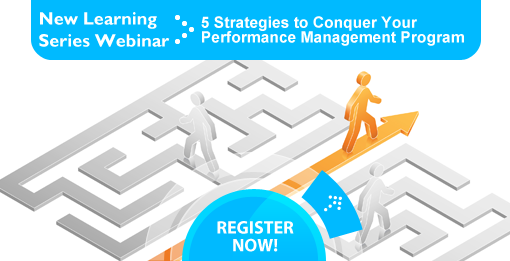Dead Man Walking: The Annual Performance Review

Type “annual performance review” in Google right now. Standing in stark contrast to the paid ad at the top of the page touting the value of one vendor’s performance appraisal solution, you will find link after link to articles like Huffington Post’s “The Annual Performance Review: #FAIL”, Businessweek’s “The Annual Performance Review: Worthless Corporate Ritual”, and Business Insider’s “Adobe Abolished Annual Performance Review”. They all share a common a theme: the annual performance review is a relic, a thing of the past that began with good intentions but has done little to advance the goal to improve employee performance. In fact, it seems they do more harm than good. Why not do away with them altogether?
You might imagine that as the CTO of a software company that develops performance management solutions that I might be a bit nervous about what is clearly a rapidly developing trend in our market. On the contrary, I’m dancing a jig! I promise, I will keep the product/company plug to a minimum if you read further. TalentGuard was founded on the principal that employee performance is best achieved by measuring performance against role-specific objective measures and not the one-size-fits-all assessments the subject of much disdain. Let me explain…
The fundamental flaw with the annual performance appraisal is the appraisal itself. The classic general behavioral assessment does little if anything to help an employee understand how they are performing relative to a complete set of objective performance criteria for their particular role. What if you could replace this general assessment with one tailored to each individual role? Would that affect the outcome? Intuitively and empirically we know that such an approach is superior to the classic model. I believe it is the only effective approach and hence supports the movement to kill the classic performance appraisal as we know it today.
The key to this working is having a “complete set of objective performance measures tied to each individual role”, i.e., a better appraisal. Before the advent of modern web applications, these objective measures, or competency models, were very difficult to develop let alone apply to a company with more than a handful of roles. For those reading who may have never heard of competency models, a competency model refers to the specific competencies that are characteristic of high performance and success in a given job and can include both technical and behavioral competencies across skills and abilities. Typically, skills are thought of as learned and abilities are innate. For example, I can develop the skill to manage but may lack the innate ability to lead with empathy and thus my effectiveness as a leader may be less than needed for my role. Both can be developed.
Since there are many roles (jobs) in any given company, there can and should be many competency models. HR departments, however, struggle to get value from the application of role specific competency models due to the overwhelming amount of data that must be pulled together and applied to every role and ultimately every individual. It’s nearly impossible to do this manually within a company that has more that a few dozen roles. We address this problem by providing a comprehensive framework manager, competency models from leading industry competency model developers, and a role management system that allows HR professionals to create roles tied directly to role-specific competency models.
Is the annual performance review on its way out the door? I certainly hope so! But before you abandon the idea of performance reviews altogether take a look at how companies like TalentGuard are bringing better solutions to the market that ultimately deliver on a promise made over 60 years ago but never fulfilled. And if you think I’m right then look for my next post that will talk about how to leverage a proper performance review for career pathing and succession planning!
Frank Ginac
Chief Technology Officer| TalentGuard
If you’d like to learn more about the right way to develop your talent and retain your top performers visit TalentGuard’s free learning center.
See a preview of TalentGuard’s platform
New Learning Series Webinar – 5 Strategies to Conquer Your Performance Management Program
Running a successful performance review program isn’t easy. Taking it to the next level with an effective, meaningful, and ongoing performance management process that produces true indications of retention and productivity is the stuff HR Heroes are made of. Many HR professionals understand that monitoring their employees ultimately builds a stronger workforce, but they don’t […]
360 Degree Feedback: Webcast Video
Are you wondering how you can improve your 360 degree feedback process? Check out our webcast “Five Common Mistakes Made in 360 Degree Feedback Surveys.” During the webcast, we to take an in-depth look at the following topics: Using generic rather than role specific competencies–hear why you need to consider using role specific competencies Moderated or unmoderated reviews–learn […]
360 Degree Feedback: 5 Common Mistakes Made
Have you ever wondered, “How do I effectively use 360 degree feedback to reveal predictors of success and make corrective decisions about the people working at my company?” John Rice recently posted a blog, “360 Degree Feedback or face-to-face conversation?” in which he says it’s not an either/or, but a both. “To all intents and purposes, we would agree that an […]



